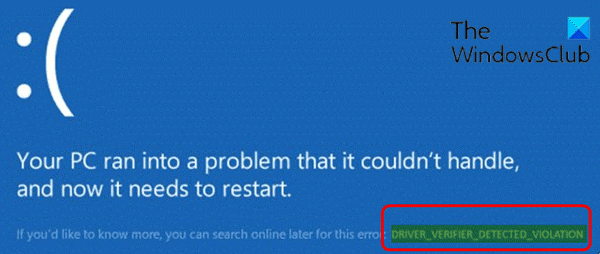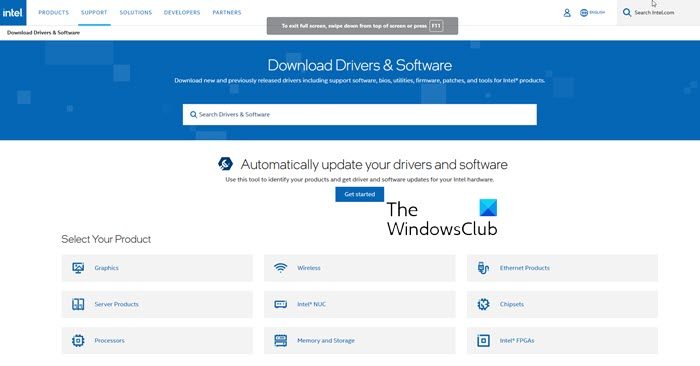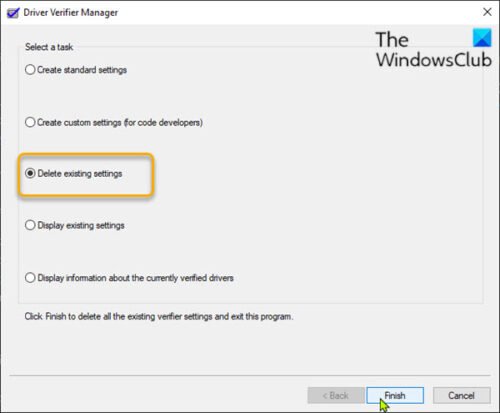Driver Verifier is a built-in tool in Windows operating system, which monitors device drivers on your computer – if it detects issues with drivers, it will attempt to fix the issue. So, in a situation whereby you have encountered a driver-related BSOD error, and you run Driver Verifier but then encounter the DRIVER VERIFIER DETECTED VIOLATION Blue Screen error instead, then this post is intended to help you. In this post, we will provide the most suitable solution to the issue.

Fix DRIVER_VERIFIER_DETECTED_VIOLATION BSOD
If you’re faced with this issue, you can try our recommended solutions below in no particular order and see if that helps to resolve the issue.
- Run the Blue Screen Online Troubleshooter
- Update outdated device drivers
- Uninstall Virtualization software (if applicable)
- Disable Driver Verifier
- Reset Driver Verifier
- Perform Reset This PC, Cloud Reset or In-place Upgrade Repair Windows
Let’s take a look at the description of the process involved concerning each of the listed solutions.
If you can log in normally, good; else you will have to boot into Safe Mode, enter Advanced Startup options screen, or use the Installation Media to boot to be able to carry out these instructions.
1] Run the Blue Screen Online Troubleshooter
This solution requires you to run the Blue Screen Online Troubleshooter from Microsoft. The wizard helps beginners & novice users troubleshoot BSOD errors like this and fix the stop error automatically.
2] Update outdated device drivers
Mostly, the graphic card driver like NVIDIA, Intel or AMD is the culprit behind this BSOD error. So, to fix the error, you can uninstall the graphics driver via Device Manager or use the Display Driver Uninstaller and then update your graphics driver.

If after updating the graphics driver the issue persists, try updating all other device drivers on your Windows computer – you can either update your drivers manually via the Device Manager, or you can get the driver updates on the Optional Updates section under Windows Update. You can download the latest version of the driver from the device manufacturer’s website.
3] Uninstall Virtualization software (if applicable)
Third-party virtualization software like VirtualBox, VMware, etc. are known culprits of this BSOD error. In this case, you can try and uninstall the virtualization software you currently have installed on your computer.
If the problem stops appearing after you uninstall the virtualization software, try using another virtualization program or downloading the latest version of the one you just uninstalled.
4] Disable Driver Verifier

To disable Driver Verifier on your Windows 11/10 computer, do the following:
- Press Windows key + R to invoke the Run dialog.
- In the Run dialog box, type cmd and then press CTRL + SHIFT + ENTER to open Command Prompt in admin mode.
- In the command prompt window, type the command below and hit Enter:
verifier
- In the Driver Verifier Manager window, select the Delete existing settings radio button.
- Click Finish.
- Reboot your Windows computer.
Driver Verifier should be disabled now and the BSOD error should be solved. If not, try the next solution.
5] Reset Driver Verifier
To reset Driver Verifier on your Windows 10 computer, do the following:
- Open Command Prompt in elevated mode.
- In the CMD prompt, type the command below and hit Enter:
verifier /reset
Once the command executes, reboot your computer and see if the issue is resolved. If not, try the next solution.
6] Perform Reset This PC, Cloud Reset or In-place Upgrade Repair Windows
If you have exhausted every other solution and the BSOD error is still unresolved, you can try Reset This PC, or Cloud Reset to reset every Windows component. You may also try In-place Upgrade Repair and/or Automatic Startup Repair and see if that helps.
Any of these solutions should work for you!